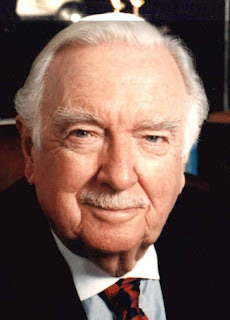My wife and I paid a visit to the Modern Art Museum of Fort Worth today. We drove to Cow Town to see the William Kentridge show, and holy mother of charcoal, the man is much better than I thought he was. I already knew he was remarkable, but the FW show is a revelation. Here's a version of a film that's in the show:
The title is Journey to the Moon. It may be in the exhibit, but my recollection is that this is not the same film. A room with multiple projected videos offers a variety of related pieces, many of which are titled Fragments for Georges Méliès. Méliès was the film pioneer who created Le Voyage dans la Lune in 1902 -- a landmark in early cinematography and filmic story telling. Coming a century later than Méliès, Kentridge's videos locate the 21st century artist in the history of movie making and conflate drawing, performing and filming. Not to mention conflating artist with model, director with performer, and process with content.
I took some notes today, but I need another shot at it all before I can review it. Two and a half hours in the museum wasn't enough. That's one of the troubles with video. Duration is like that -- it just takes time to haul it all in. We'll hit it again tomorrow after we check out of the motel.
Sunday, July 26, 2009
Sunday, July 19, 2009
More raw footage
PingWire is a live feed of all images posted to one of three sites that host pictures for Twitter users. This means that anything of interest to tweeters for any reason (love, hate, desire, fear, you name it) appears on the site once it has gone through the uploading and publishing process. PingWire offers a glimpse into the collective mind of a significant subset of the Internet -- a visual guide to the unconscious. Like the Internet is dreaming.
Porn is there, of course. So are injuries, tourist destinations, and boyfriends. Last week there were scores of pictures sighted down the picture takers' supine legs at assorted beaches.
It turns out that a sizeable portion of the pictures tweeters share with the world involve food -- eating, cooking, and sometimes growing food. Some photos document a pretty child eating an ice cream cone. Some show empty plates. Others offer scrumptious desserts or elaborate platters of sushi.
Their motives vary widely. Some images appear because a besotted mother wants to show us her son's reaction to (e.g.) a crate of strawberries. Some are offered by disgusted patrons repulsed by the fare at a sub-standard diner. Some are snarky. Some celebrate pleasures.
Many are badly composed and unfocused. Others are professionally exposed ads for restaurants.
Last week I saved as many food and eating pictures as I could during a few hours spread out over four days. I harvested about 1300 pictures during that time. Today, I imported them into a video that turned out to be a little longer than 11 minutes at 1/2 second per image. There is no sound so far, and I'm probably going to rework it considerably, but even the raw footage is interesting to me.
At least it is tonight.
Friday, July 17, 2009
Wednesday, July 15, 2009
Thursday, July 9, 2009
Raw video
I'm starting to think about food distribution for a show I'm going to participate in this fall. This video clip was shot a couple of days ago in the parking lot of a local supermarket. Sketchy quality video on an iPhone and didactic right now, I guess. But still...
The clip above is one of two I shot on the Fourth -- iPhone video again. It's less didactic than the first one, but food-related nonetheless. Barbecue might the be only valid reason to dump carbon into the atmosphere.
This post might mean my blog is becoming a sketchbook, but I can't yet tell.
Monday, July 6, 2009
Fog and death
Robert McNamara is dead. I hated him once. While he was Secretary of Defense, 16,000 American servicemen and women died in a terrible, purposeless war. Another 42,000 Americans would die before it was all over. Somebody knows how many Vietnamese people died in that war, but I don't.
John Kennedy called him the smartest man he ever met. A master of systems analysis, McNamara crunched numbers both from the Pentagon's organization and from the bloody data he got from Southeast Asia to figure the smartest solutions to problems posed by both. I'm reminded of the finance systems modelers whose far-too-smart "products" precipitated the current recession. Apparently he came to agree with this assessment:
John Kennedy called him the smartest man he ever met. A master of systems analysis, McNamara crunched numbers both from the Pentagon's organization and from the bloody data he got from Southeast Asia to figure the smartest solutions to problems posed by both. I'm reminded of the finance systems modelers whose far-too-smart "products" precipitated the current recession. Apparently he came to agree with this assessment:
“War is so complex it’s beyond the ability of the human mind to comprehend,” Mr. McNamara concluded. “Our judgment, our understanding, are not adequate. And we kill people unnecessarily.”If you haven't seen the documentary The Fog of War, see it soon. Here's an excerpt:
Subscribe to:
Posts (Atom)
